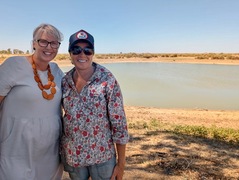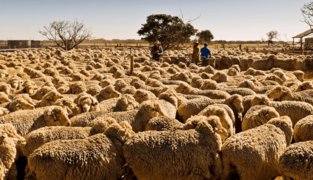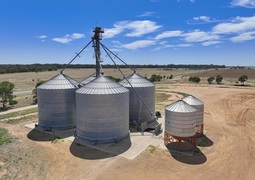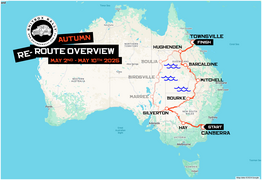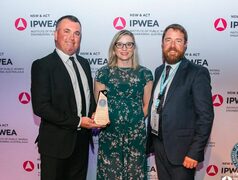My toenails fell off, and my lungs arrived in an esky
Kimberly Grabham
16 May 2025, 11:00 PM
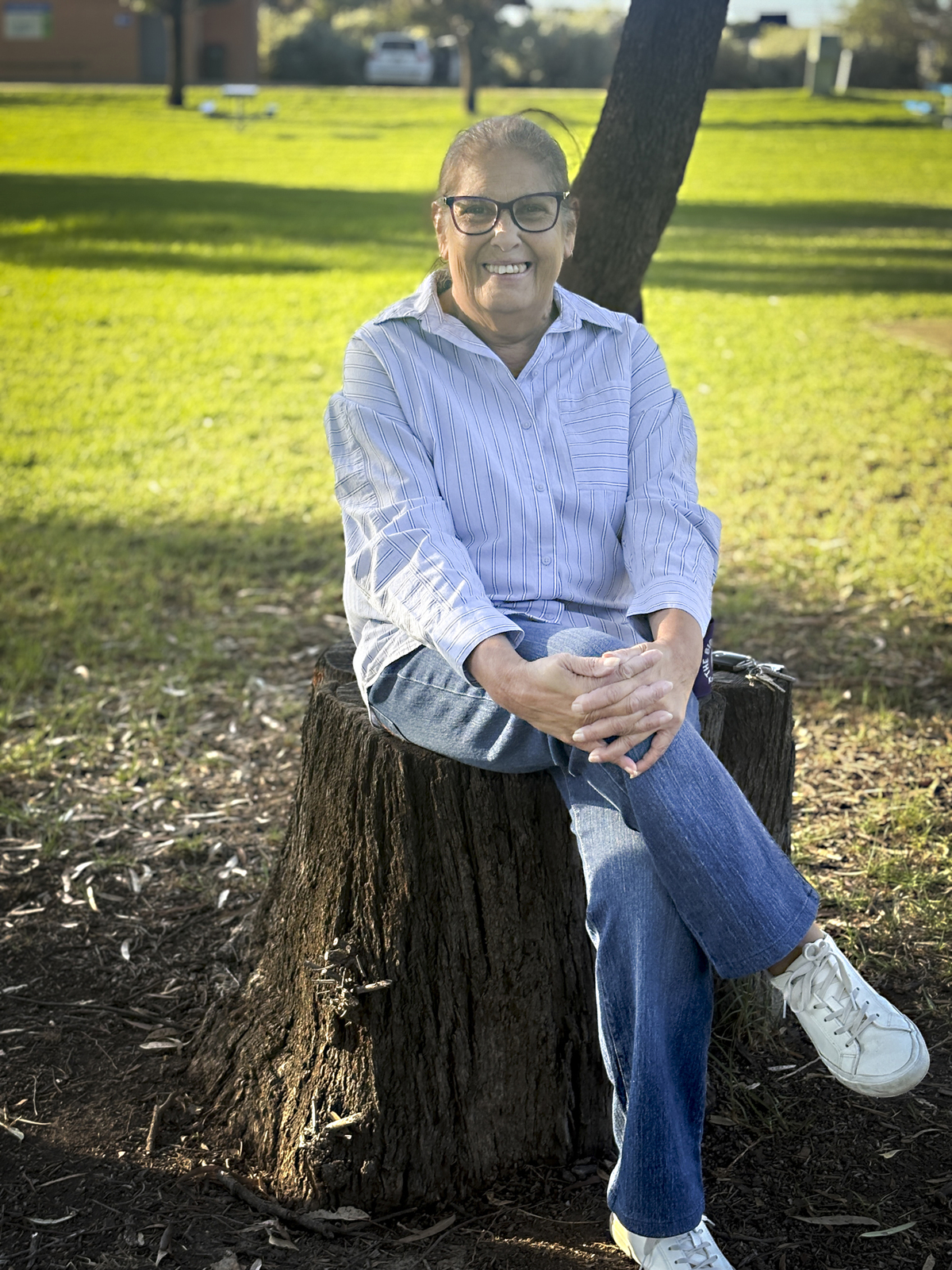
Picture this: you're being wheeled into an operating room on a bed, husband by your side. As you are saying your goodbyes, a medical team enters the area, armed with an esky. Your husband asks the team if there are lungs in there, and they say yes. Two organs which will soon be in your body. You're being wheeled in for a transplant, and the organs you will receive have been walked right past you on ice.
This was Di Butler's experience.
Di Butler is a well-known and respected Hay local. Tough, plain spoken and empathetic, nothing seems to ever get her down.
Di originally came to Hay to live when she was 15. Before then, her family lived in Ivanhoe and other places within the region.
When she finished school, she delved into a wide variety of employment positions.
"I have been a shop assistant, cleaning, and then I think the longest job I held was at Hay Hospital on the domestic staff," she said.
Di met her husband in 1982, in the traditional country town manner; at the Caledonian Pub.
"We were quite young, he's about 18 months older than me," she said.
"We were together for a little while, then we got married. We were married for five years and then we had Matthew."
After having Matthew, Di then went back to casual roles including some bar work and with home care.
She began her journey in the world of education as a teacher's aide at Hay Public School, concluding her role when her health began to decline. She now happily works at Hay War Memorial High School as a School Learning Support Officer, and has for 13 years.
The Decline
Di said it all began in a relatively short time frame.
"It was six years from the time I noticed the decline to the time I was diagnosed with Emphysema or COPD (Chronic Obstructive Pulmonary Disease).
"It was six years after that when I received the transplant.
"They said to me the worst scenario would be me needing a transplant.
"Prior to that, I was told I likely only had two years to live if I didn't have the transplant."
Receiving a basic death sentence is not something most of us will face.
"It's like someone kicks you in the guts. What little breath I had, I lost it," she said.
"He's a lovely doctor, but I wasn't prepared for him to tell me that.
"He then went on to tell me I was a good transplant candidate, and explained my options. So, I actually, as far as I'm concerned, he didn't do surgery, but he saved my life, by making me feel that I could get through it."
It took Di two and a half hours to drive home from Griffith that day.
"I think I cried all the way home from Griffith. And I wrestled with the decision all the way home.
"When I got to the Elders building (on the outskirts of Hay), I thought, 'no, I'm not going to have it. I can't have it. It's just too much hassle. I can't do it; I haven't got the energy yet.
"I drove into my driveway, and Matthew was walking up from school.
"He had his uniform on, he had his backpack on his back.
"I got that light globe moment and I thought, 'You idiot. Of course you're going to have it. How can you leave him without a mother?'
"Anyway, once I decided, I undertook the many tests needed, and was put on the list."
Medical professionals told Di the average waiting time was about five months.
However, because Di has a really unusual blood group and was the only one on the list at that time with that blood group, she might not have to wait that long.
The Call
When Di received the call, it was Good Friday; April 10, 2009.
She received the call at 7pm, and the Flying Doctor came out for her. The ambulance picked her up and took her out to Hay airport.
"I was on that plane at 9.30pm and at the emergency department at the hospital in Sydney at 12 midnight," she recalled.
"I wasn't scared; I was only scared that I wouldn't get it.
"I just about jumped off the bed onto the trolley to take me to the theatre when they came to get me."
By the time Di was to receive her transplant, things were quite bleak.
She had a mere 13 per cent lung function, and weighed 53 kilos.
"My lips were blue; my fingernails were blue. Some of my toenails had lifted off, because there wasn't any oxygen getting to my feet. My gums were blue. So, I was a real picture of health," she said.
"I had the transplant and I had Matthew; that was what kept me going."
The Struggle Before Transplant
Both before and after the transplant Di refused to be a patient in her own home.
She got up every day, got dressed and did everything she was capable of.
"I couldn't do very much towards the end," she said.
"I couldn't even walk to my front gate without gasping for air.
"There wasn't actually any pain, but there's this heaviness in your chest. The surgeon told me what happens when you have emphysema.
"What happens is the lungs get really hard, like bricks. So, you're basically carrying two bricks around in your chest. I'd wake up exhausted. I slept with oxygen.
"I had to have oxygen on, otherwise, I'd die in my sleep."
Di desperately wanted to be well for three things; Matthew's Year 12 graduation, his 18th birthday and a milestone birthday that December.
"I was well for all three. The night we were getting ready to go to his formal, I thought, I feel like Cinderella; going with the ball. It was great," she said.
Recovery and New Beginnings
Di spent three or four days in ICU, and 10 days in hospital altogether.
Then she was moved down to units behind the hospital where she spent eight weeks.
She had to go to the clinic every day except Wednesday.
Blood tests and chest x-rays and various tests would be performed, and she'd see the doctor.
She did that for eight weeks. She came home on the long weekend in June.
Donald picked her up and she was home for four or five days.
Then she flew back, and was only there for two weeks when they said she could come home.
Di continued to go back regularly for checkups every fortnight or so.
Then it was stretched out to two months and then three months.
And then once COVID hit, they were only seeing the really urgent patients.
"I do a lot of observations at home, so I have to do my own blood pressure, temperature and a lung function test. If I can get 2.5 on that, I'm doing well. If that drops by 15 per cent, that's the danger number," she explained.
Building Strength Through Determination
"The daily exercise started when I was still in Sydney post-transplant," Di said.
"I would challenge myself every day. There was just a bit of a hill that you had to go up to get around to the front of the hospital.
"So, I might get a quarter of the way up and I'd have to stop.
"But it wasn't my lungs that stopped me, it was my legs; I had no muscle tone in my legs.
"So, the legs couldn't keep up with the lungs.
"I would work on it, and get a little further each day.
"On the day I got up the hill without stopping, I was overjoyed, and treated myself to an ice cream."
Life After Transplant
"I can eat anything I want, all recommended in moderation. Devon or something, I want processed meat, I can have some of that," Di shared.
"The only thing I can't eat and I don't like anyway is grapefruit, because the acidity interferes with the medication I take.
"I can still have a rum every now and then as long as I have a water with it. I can eat chocolate.
"I have to drink three litres of water a day to flush out the kidneys. That's all second nature now. A lot of people say to me, oh, you still take tablets?
Yes, I do, and I will until the day I die."
The Unseen Challenges
"I've lost lots of friends who have had lung transplants. There were four of us who were all transplanted at or a few days apart, all within six days. We all knew each other and got along really well," she said.
"So out of the four, I'm the last one."
The others had comorbidities which impacted their health.
"I was always positive. Always positive and the doctor had said to me, after I had my transplant, they said to me a positive attitude is 50 per cent towards your recovery," Di explained.
"I'm always positive because I told myself, I'm not going to do this unless it works.
"I'm not going to go through all this and have it fail; it's going to work. And it did.
"The other thing too that's in my favour is I don't live in a big community, I don't have a lot of people around me."
Connection to Donor Family
Di has sent letters to her donor family, through a third-party agency similar to the adoption communication process.
"I know it has been passed on, so I did one, nine months after my transplant.
And I sent another about three months ago. I haven't had a response. I just know it's been passed on.
"And I probably won't do another letter, otherwise I feel like I'm harassing."
Di would like to have known the donor's birthday to commemorate it, but respects the family's privacy. She participates in a Facebook group for donors and recipients to potentially connect.
"On the anniversary of my transplant, I always put up my details," she said.
"Maybe one day it might click for someone and say, yes, that could be our person.
"It's not something that takes up a lot of my time worrying about it.
"I just like to have a birthday so I could do something on their birthday. But I do that on the anniversary anyway."
When asked what she would say given the opportunity to talk to her donor and the donor's family, Di responded, 'I'd probably be a blubbering idiot'.
"I write things in the letters, like due to the transplant I was able to see my son turn 18, 21 and 30; they're all really big things.
"I write that I never thought it would be possible to go back to full time work and here I am working full time for 13 years."
Di was always open and honest with her son Matthew about her health, keeping him informed without making it overly dramatic.
"He said to me, Mum, you'll be right. And he said, they do transplants all the time. And he said, you'll be fine; he's a very smart kid," she said.
At age 17, while she was in Sydney, Matthew stayed at home with the two cats, got himself ready for school, and could get things from the supermarket.
A lovely family friend and her family had him over to have dinner with them every night.
Di credits this as a maturing experience for Matthew.
Living Life to the Fullest
Di has been making the most of her second chance at life.
She recalls a conversation with one of her doctors, a professor and head of the transplant unit who has since passed away.
"One day, I said, 'Allen, I have to ask you something; how long do you think I'll live?' He slapped me on the knee, and he said, 'You know what? I reckon you might live until you die'.
"That's what he said. That's how I think of it; I'll live until I die," Di shared.
Di will never be eligible for another lung transplant due to her age. She also says she would never take it anyway.
"I look at it like this; I've had such a good run, I would never expect to have another one," she said.
Life is going well for Di now.
In her usual full steam ahead manner, she has completed many items on her bucket list.
"I actually had a bucket list. So, I got myself a passport. I've been on a few cruises; to New Zealand, New Caledonia.
"Donald and I just had a two-week trip sort of over to the UK. It was pretty.
"We spent a week in Ireland and it was pretty full-on. I just renewed my passport so I'll find other places to go."
When Di received her transplant, she was number 401, and received a badge for 401. These days, over 4,000 lung transplants alone have been completed in the 16 years since her operation.
She was the first person in Hay to have a lung transplant, and has become a mentor for others facing similar circumstances.
"I can say whatever I like, but it's up to them. It's up to the person having it," Di explained.
"Everything might be good for me and has been good for me. But it might not be for them."
Di has learnt that each transplant journey is different, with individual circumstances and comorbidities playing a major role in outcomes.
"I have come to realise how very important walking is, and I walk every day," Di said. "I absolutely love it, and it fast became second nature after my transplant."
A Personal Cause
Di implores people to strongly consider signing up to be an organ donor.
"I was amazed when I came home, and actually had my first outing," she said.
"I had three places to go to in the main street, which should have taken me half an hour. It took me two hours to get home.
"I had just so many people come up to me and say, I wasn't on the donor list, but you know what? I went and got on the donor list after hearing of your transplant. I was so touched by the support.
"But it is an amazing gift, to receive a second shot at life.
"If worst comes to worst, and that happens, through a horrible thing so many people are granted more life.
"Because I know when I was on the waiting list, there were more people waiting for a transplant than there were transplants available.
"There are more people waiting for a transplant than there are donors. So people died because there are no donors."
Di recalls an experience which still makes her smile.
"They took me off down the anaesthetic bay and I was so excited. A few weeks later, I had to go back in and have a check on the lungs.
"The woman at the anaesthetic bay said to me, "I'll never forget you.' And I said, 'Why?' She said, 'You were so excited; didn't shut up. You couldn't wait.
"We get people in here that are terrified sort of at the last minute."
Through her experiences, Di has become a powerful advocate for organ donation. She encourages everyone to register as an organ donor, emphasising how simple the process is.
"It is an amazing gift, to receive a second shot at life," Di said.
And for Di Butler, that gift has been embraced with every fibre of her being.
NEWS
RURAL

